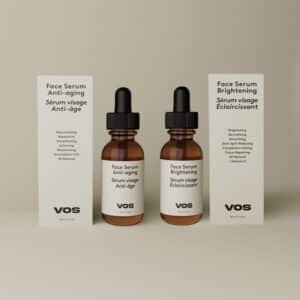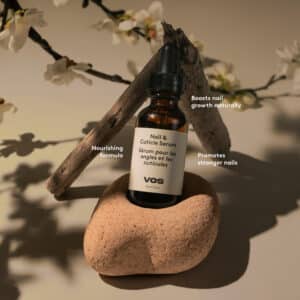When it comes to achieving healthy, glowing skin, oil serums have become an essential part of modern skincare routines. Their nourishing properties and versatility make them suitable for all skin types, offering hydration, protection, and targeted treatment for a range of skin concerns. If you’ve ever wondered why oil serums are a must-have in your skincare routine, this article will break down the reasons, benefits, and how you can incorporate them effectively.
What are Oil Serums?
Oil serums are lightweight, concentrated skincare products designed to deliver essential nutrients, fatty acids, and antioxidants directly to the skin. Unlike traditional moisturizers, oil serums contain a blend of botanical oils and active ingredients that penetrate deeply into the skin to target specific concerns such as dryness, dullness, fine lines, or inflammation.
Unlike greasy or heavy oils, modern oil serums are formulated to absorb quickly, leaving the skin hydrated and soft without clogging pores. Whether your skin is oily, dry, or sensitive, there is an oil serum suitable for your needs.

Benefits of Oil Serums in Your Skincare Routine
1. Deep Hydration and Moisture Retention
One of the primary benefits of oil serums is their ability to provide deep hydration. They seal moisture into the skin, creating a barrier that prevents water loss. Oils such as jojoba, argan, and squalane mimic the skin’s natural lipids, ensuring a smooth and soft complexion.
For individuals with dry or dehydrated skin, oil serums act as a much-needed supplement to moisturizers, keeping the skin plump and hydrated for longer periods.
2. Nourishment with Essential Nutrients
Oil serums are rich in vitamins, fatty acids, and antioxidants, which are essential for maintaining skin health. Ingredients like rosehip oil contain vitamin A and C to boost collagen production, while marula oil is packed with fatty acids to strengthen the skin’s natural barrier.
These nutrients help repair the skin, reduce damage caused by environmental stressors, and promote overall radiance.
3. Improved Skin Barrier Function
A healthy skin barrier is critical for preventing irritation and maintaining moisture levels. Oil serums strengthen the lipid barrier, shielding the skin from pollutants, toxins, and allergens. By reinforcing this barrier, oil serums make the skin less prone to sensitivity and inflammation.
For sensitive or compromised skin, oils like chamomile, calendula, and evening primrose oil work to soothe irritation and restore balance.
4. Balancing Oily and Acne-Prone Skin
Contrary to popular belief, oil serums can be highly beneficial for oily and acne-prone skin. Lightweight oils, such as jojoba and grapeseed oil, regulate sebum production, ensuring the skin does not overproduce oil. When the skin receives the right level of hydration, it reduces the likelihood of clogged pores and breakouts.
Oil serums with anti-inflammatory properties, such as tea tree or neem oil, also help calm active acne and reduce redness.
5. Anti-Aging Properties
Many oil serums contain powerful antioxidants that combat free radical damage, a major contributor to premature aging. Oils like pomegranate seed, rosehip, and argan oil are known for their ability to improve skin elasticity, reduce fine lines, and fade dark spots.
Regular use of oil serums helps promote a youthful, firm, and glowing complexion by protecting the skin against oxidative stress.
6. Enhanced Absorption of Other Skincare Products
Oil serums can help other skincare products penetrate more effectively. When applied correctly, oils act as a carrier, allowing water-based serums and treatments to reach deeper layers of the skin.
Incorporating oil serums into your routine ensures that all your skincare products work synergistically for maximum results.
How to Choose the Right Oil Serum for Your Skin Type
Not all oil serums are the same, and choosing the right one depends on your skin’s unique needs. Here’s a guide to help you find the perfect oil serum:
For Dry Skin:
Look for heavier, nutrient-rich oils that provide long-lasting hydration. Options like marula, avocado, and argan oil deeply nourish and restore moisture.
For Oily or Acne-Prone Skin:
Lightweight, non-comedogenic oils are ideal. Jojoba, grapeseed, and rosehip oils regulate sebum production without clogging pores.
For Sensitive Skin:
Choose soothing and calming oils like chamomile, calendula, and evening primrose oil. These oils reduce inflammation and minimize irritation.
For Mature Skin:
Antioxidant-rich oils like rosehip, pomegranate seed, and sea buckthorn oil target signs of aging, improve elasticity, and boost collagen production.
How to Use Oil Serums in Your Routine
Step 1: Cleanse Your Skin
Start with a gentle cleanser to remove impurities, makeup, and excess oil. This ensures your skin is clean and ready to absorb the serum.
Step 2: Apply a Toner
A hydrating toner preps the skin and balances its pH levels, enhancing the absorption of subsequent products.
Step 3: Use a Water-Based Serum
If you use a water-based serum (like hyaluronic acid), apply it before your oil serum. Water-based products penetrate first, while oil serums lock in moisture.
Step 4: Apply the Oil Serum
Dispense 2-3 drops of oil serum onto your fingertips. Gently press it into your skin, focusing on dry or problem areas. Avoid rubbing, as this can cause unnecessary friction.
Step 5: Finish with Moisturizer
Seal everything with a moisturizer to maximize hydration and lock in the benefits of the oil serum.
Step 6: Use Sunscreen (Morning Routine)
If applying oil serums in the morning, finish your routine with a broad-spectrum sunscreen to protect your skin from UV damage.
Myths About Oil Serums
Despite their benefits, oil serums are often misunderstood. Let’s address some common myths:
1. Myth: Oil Serums Make Oily Skin Worse
Reality: The right oil serum can balance oily skin by regulating sebum production.
2. Myth: Oil Serums Clog Pores
Reality: Non-comedogenic oils like jojoba, argan, and squalane do not clog pores.
3. Myth: Oil Serums Are Only for Dry Skin
Reality: Oil serums cater to all skin types, including oily, acne-prone, and sensitive skin.
Final Thoughts:
Incorporating oil serums into your skincare routine can transform your complexion by providing hydration, nourishment, and targeted treatment for various concerns. Their ability to strengthen the skin barrier, fight signs of aging, and balance oil production makes them suitable for all skin types.
By selecting the right oil serum for your skin and applying it correctly, you can achieve a radiant, healthy glow that lasts. Whether you’re new to oil serums or looking to optimize your skincare routine, these multitasking products are a valuable addition that delivers visible results.



